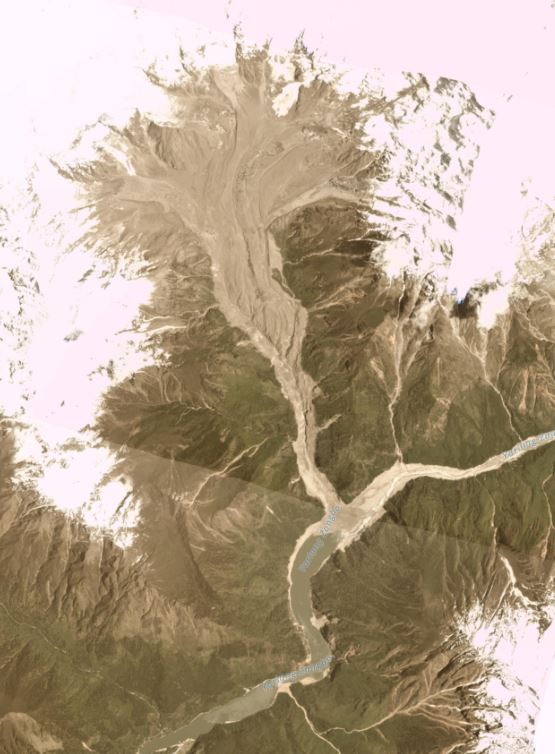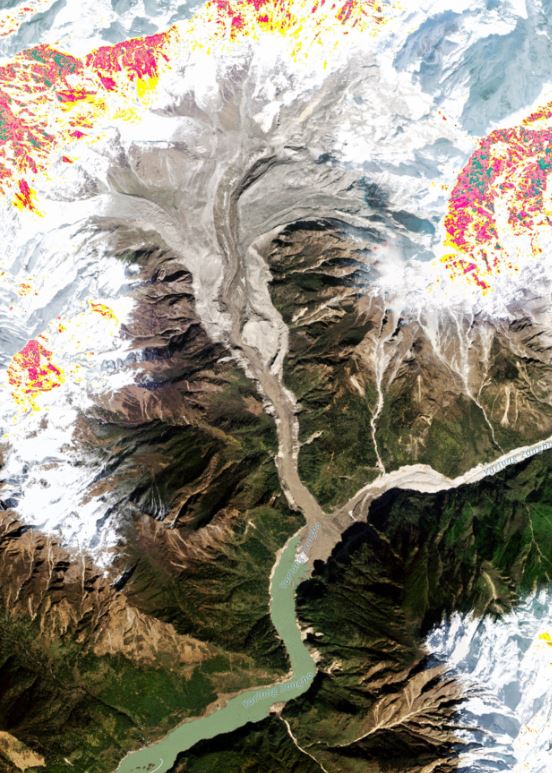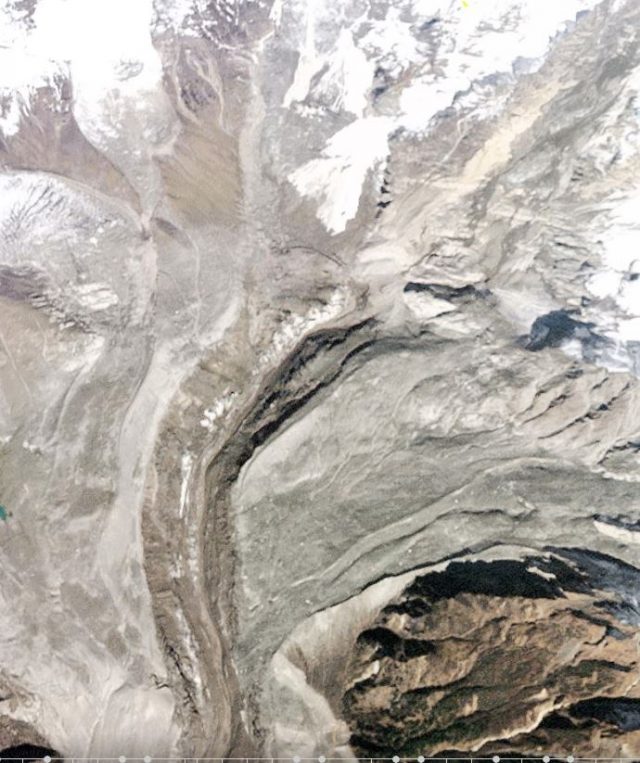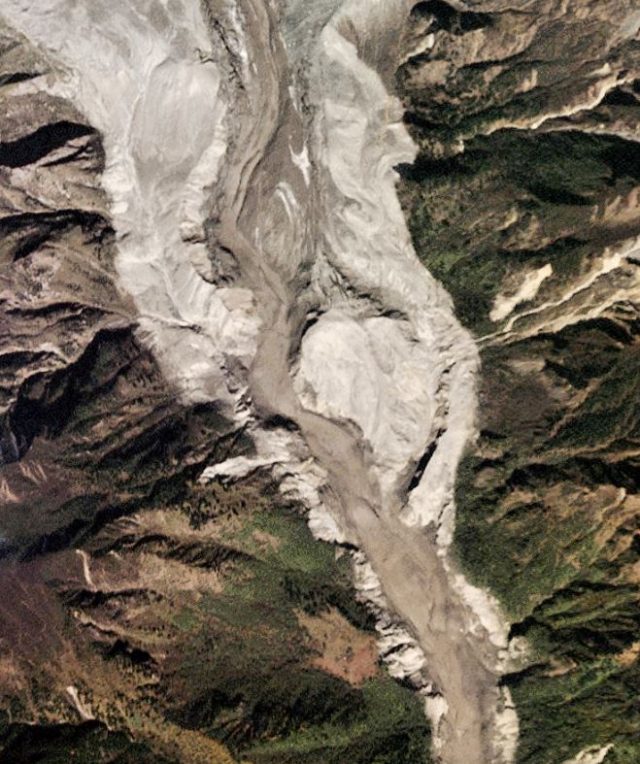5 November 2018
Another major glacial debris flow blocked the Yarlung Tsangpo river in Tibet
Posted by Dave Petley
Another major glacial debris flow blocked the Yarlung Tsangpo river in Tibet
On 17th October 2018 a major debris flow occurred on the Sedong Ri glacier above the Yarlung Tsangpo river in Tibet, one of the tributaries of the Brahmaputra. This flow blocked the river, although the barrier was quickly overtopped, and flow resumed. Colonel Vinayak Bhat (retired), who posts on Twitter as @rajfortyseven, has posted an article on The Print in which he has used satellite imagery to show that a further major surge has occurred in this glacial system, once again blocking the Yarlung Tsangpo, although subsequently the dam has overtopped once more. Fortunately, as we move into winter this area has less cloud than previously, so the system is clearly visible on Planet Labs imagery. This image shows the state of the glacier and the Yarlung Tsangpo on 5th June 2018:-

Planet Labs image of the Tsong Ri Glacier and the Yarlung Tsangpo river before the glacial landslides. Planet Labs image dated 5th June 2018. Used with permission.
.
This is the same site as captured by a Planet Labs image on 30th October 2018. Note the bright colours in the areas covered by snow are artifacts of the processing, and have no significance:-

Planet Labs image of the Tsong Ri Glacier and the Yarlung Tsangpo river after the glacial landslides. Planet Labs image dated 30th October 2018. Used with permission.
.
The track of the major glacial debris flows can be clearly seen, originating in the northeast side of the source area and then traveling down to the river to deposit a large amount of debris. The Planet Labs image below shows this source area in more detail:-

Planet Labs image of the source of the failure above the Tsong Ri Glacier. Planet Labs image dated 30th October 2018. Used with permission.
.
It appears that the glacial debris flows have been triggered by a very large rockslope failure – this appears to be about 1 km in length, and the fresh rock exposed in the base of this landslide can be very clearly seen in the images above. This landslide appears to have then triggered a mass failure of the glacier (or glacial debris), and it has entrained and eroded out a large volume of material. Lower down the channel, as the gradient has reduced, the mechanism has changed from erosion to deposition:-

The transition from erosion to deposition on the glacial landslide above the Yarlung Tsangpo. Planet Labs image dated 30th October 2018. Used with permission.
.
Reference
Planet Team (2018). Planet Application Program Interface: In Space for Life on Earth. San Francisco, CA. https://www.planet.com/


 Dave Petley is the Vice-Chancellor of the University of Hull in the United Kingdom. His blog provides commentary and analysis of landslide events occurring worldwide, including the landslides themselves, latest research, and conferences and meetings.
Dave Petley is the Vice-Chancellor of the University of Hull in the United Kingdom. His blog provides commentary and analysis of landslide events occurring worldwide, including the landslides themselves, latest research, and conferences and meetings.